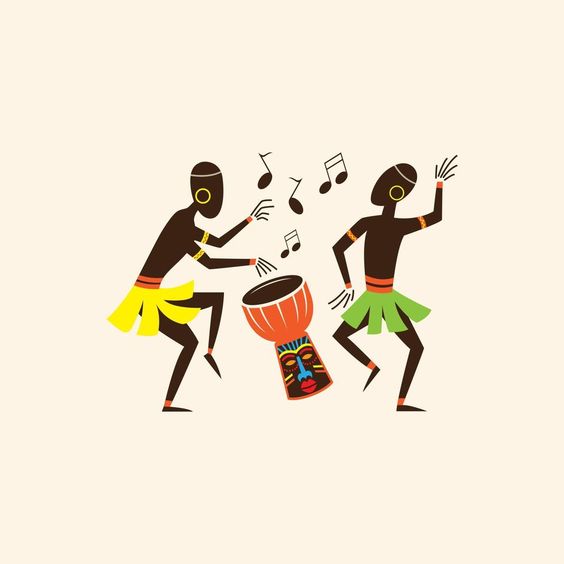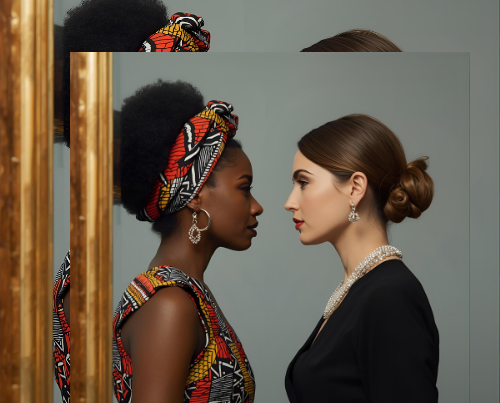Nostalgic African Songs Every African Grew Up Listening To
Growing up in Africa was a vibe. And no, I’m not just talking about the culture or food, I’m talking about the music—those nostalgic songs that were practically the soundtrack to our childhood. Most times we didn’t know the lyrics but we sang the songs anyway. That’s the beauty of music, it transcends language barriers. Almost every African across the whole continent, grew up listening to these songs because they were played in the radios every time.
These songs, among many others, are more than just melodies—they’re the soundtrack to childhood memories, family moments, and community gatherings. They represent the rich diversity of African music, yet also the shared experiences that unite people across the continent.
Whether through the sounds of Brenda Fassie’s dance hits, Lucky Dube’s soul-stirring reggae, or Kofi Olomide’s irresistible beats, these nostalgic songs have left an indelible mark on African culture. It did not matter where the artist was from, or the strange language they were singing in, there was just something about these songs, because they spoke to your soul directly.
Today, they evoke a deep sense of nostalgia, reminding us of the power of music which brings people together, generation after generation. I can’t count how many times I’ve been hit by a wave of nostalgia when a classic comes on the radio. You know that feeling when the first notes start, and you’re instantly back to your younger self? Yeah, that.
Let me take you on a little musical journey, back to the days when all you needed was a radio, a family party, or a neighborhood get-together to hear these legendary tunes and timeless classics that filled homes, streets and forever ─ our hearts.!. Warning: You might start singing along.
1. Brenda Fassie – “Vulindlela” (South Africa)
Brenda Fassie’s energetic voice and infectious beats made “Vulindlela” a pan-African anthem. The song, originally sung in Zulu, tells the story of a joyous wedding celebration. Whether or not you understood the lyrics, the tempo and joyful melody were irresistible. “Vulindlela” was a wedding favorite, and whenever it played, you knew the reception was about to get lit. Fassie’s voice, passion, and energy made her an absolute legend across the continent. You couldn’t attend a party without an auntie or uncle shouting, “Turn it up!” as soon as that song came on. It was as if everyone just knew, when Brenda’s voice hit those notes, it was time to dance. Even if you had two left feet, Vul’indlela made you feel like you could move like a pro. The energy in that song could fill any room, and even today, it’s a classic. Whenever it plays, I swear it takes me back to dancing in our living room, dodging furniture while trying not to step on my little cousin’s feet.
2. Yvonne Chaka Chaka – “Umqombothi” (South Africa)
Yvonne, also popularly nicknamed the “Princess of Africa,” blessed the continent with “Umqombothi” (the Friday song). With its catchy beat and celebratory lyrics about African beer, the song brought a sense of pride in African traditions. Whether at parties, on the radio, or during festivals, “Umqombothi” was a guaranteed favorite, and its infectious energy remains timeless. It didn’t matter if you were at a wedding, a birthday party, or just a random family get-together—once Umqombothi came on, the energy shifted. People of all ages hit the dance floor with drinks in hand, and the whole room would sing along as if it were a national anthem. That song just has a way of putting you in a good mood, no matter what.
3. Awilo Longomba – “Coupe Bibamba” (Congo)
If there’s one song that could get every African child (and adult) dancing, it’s “Coupe Bibamba” by Congolese artist Awilo Longomba. The song’s upbeat tempo and irresistible rhythm made it a go-to track for parties and gatherings. Kids would try to mimic Awilo’s signature dance moves, while adults couldn’t resist moving to the catchy tune. No playlist was complete without this Congolese anthem! Awilo’s “Coupe Bibamba” wasn’t just a song—it was a mood. You didn’t even have to know the dance moves because the music just got everyone up, shaking their hips and living their best lives. Coupe Bibamba by Awilo Longomba was an event every time it played. I’m talking dance floors erupting, people suddenly springing out of their seats, and uncles challenging each other to dance-offs. When that fast-paced beat dropped, it was impossible to stay still. Awilo’s music seemed to break all boundaries. No matter where you came from in Africa, Coupe Bibamba was a unifying force. The wild beats, the lively dance moves…. it was just impossible to ignore. Plus, everyone wanted to master the legendary footwork that came with it. I remember trying (and failing) to keep up with the older kids who seemed like they were born knowing how to do it.
4. Oliver Mtukudzi – “Todii” (Zimbabwe)
Zimbabwe’s legendary Oliver Mtukudzi had a way of speaking to the soul with his husky voice and poignant lyrics. “Todii” was one of those songs you’d hear on a quiet Sunday afternoon, making you reflect and nod along to its deep message. It was the perfect soundtrack for those chill moments.
Oliver Mtukudzi’s music always carried a message, and “Todii” is no exception. I remember ten year old me used to sing, ‘wacha wivu’ which directly translates to stop being jealous in Swahili (I know I am not alone in this one).This soulful track, with its soothing guitar melodies, was about addressing social issues and hardships, but its calming vibe made it a favorite for peaceful afternoons or reflective moments. Mtukudzi’s music spread like wildfire across borders, and “Todii” became a part of the African experience.
5. Kofi Olomide – “Loi” (Congo)
Here comes the king of Congolese soukous. Maestro Kofi Olomide’s “Loi” was another pan-African favorite. With its infectious beat and lively rhythm, this song had everyone on their feet at family gatherings and parties. The song’s popularity spread beyond Congo, becoming a go-to hit for celebrations across Africa. If you didn’t shamukwale to this song, are you even Afrikan? The dance style slapped harder when you tucked your shirt into your trousers or whatever you were wearing, drawing more attention to the waist while gyrating to this song. Terrible scenes I tell you. Our waists suffered under the enchantment of this song Ndombolooo.
6. Angelique Kidjo – “Agolo” (Benin)
Most people might remember it by its intro Oriorioo arekuterrii..something along those lines. Yoruba people don’t come for me ooo (I am even embarrassed to say the rest of the words because they are just gibberish). Angelique Kidjo’s vibrant energy and Afrobeat rhythms made “Agolo” an unforgettable track. Its fast-paced rhythm made it a popular dance song. Kidjo’s influence made “Agolo” a staple in homes across the continent.
I really enjoyed the song but I remember getting scared of the music video as a kid, anytime this song came up on tv because of its visuals. However, as a grownup now, I can’t help but be in awe of the great work of art in the video production. Now that’s what we call mainstream media representation. I mean Black panther (the movie) got inspired from this (Including the legendary wakanda forever sign @2.37).
Kidjo had this power to make you feel grounded and connected to something bigger. The song’s rhythm was something you felt deep in your bones—whether you understood the lyrics or not. Even as kids, we knew Agolo was more than just a song. It felt spiritual. It had that earthy, rooted sound that made you feel like you were connecting to a history that went far beyond the present moment. It wasn’t the kind of song that made you want to jump up and dance like Awilo’s tracks, but it was one that made you sway, close your eyes, and just feel.
7. “Lucky Dube – Remember Me”
For many Africans, reggae legend Lucky Dube was the king of cool. “Remember Me” wasn’t just a hit, it was an anthem for hope, resilience, and love. Whether it was blasting from a neighbor’s house or the speakers at your local barber shop, Lucky Dube always hit the right notes. It was one of those songs that could silence an entire room. Growing up, it wasn’t just a track—it was a story. Every parent seemed to have a connection to it, and you’d always find them nodding along, maybe with a distant look in their eyes, lost in thought.
Lucky Dube’s reggae sound was unlike anything else. His voice had that mix of melancholy and hope, and even as kids, we felt as if we understood the lyrics that were far beyond our age.
Conclusion: The Soundtrack of Our Lives. Why These Songs Stick With Us
You see, these songs aren’t just tunes, they’re time capsules. They remind us of our childhoods, our communities, and those shared moments with family and friends. Each one tells a story, reminds us of simpler times, and connects us to a shared cultural heritage. Whether you grew up in Lagos, Nairobi, Johannesburg, or Accra, there’s a good chance these tracks were part of your life’s soundtrack.
Even today, when I hear any of these classics, I’m transported back. And the best part? These songs have transcended generations. It’s not uncommon to find kids today still jamming to them—proof that true classics never die.
So, next time you need a little hit of nostalgia, throw on one of these tunes and let yourself go back in time. Just don’t be shy if you suddenly feel the urge to sing along and bust a move.. and remember the good times …
What were your favorite African childhood jams? Feel free to share in the comments—let’s reminisce together
#Throwback #AfricanClassics #Nostalgia


Your writing flows so well😊it kept me engaged from the start to the end
Well-crafted piece!
Nostalgia indeed! I am not sure I knew they were from those African countries but I loved the Umqombothi but a younger me would argue that is mkomboti to date.
Very interesting indeed. I love these posts